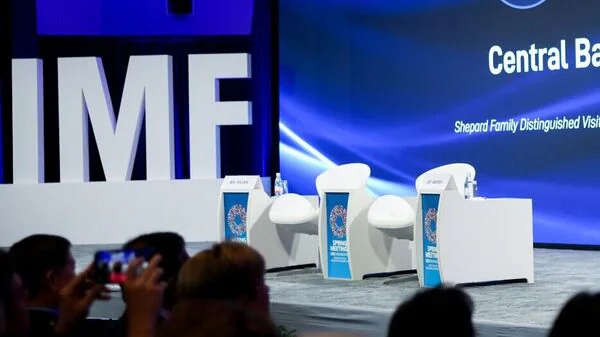The International Monetary Fund (IMF) has approved a $1 billion disbursement to Pakistan under its ongoing $7 billion Extended Fund Facility (EFF), bringing total payouts to $2.1 billion. Additionally, a fresh $1.4 billion Resilience and Sustainability Facility (RSF) was sanctioned to support climate resilience efforts. The decision, taken during a tense board meeting in Washington, follows months of negotiations and comes despite strong objections from India over Pakistan’s alleged misuse of funds for military and cross-border terrorism.
What This Means for the India-Pakistan Conflict
The IMF’s approval of a fresh bailout for Pakistan comes at a time of unprecedented escalation between the two countries. On 22 April 2025, militants crossed over from Pakistan and carried out a brutal massacre in Pahalgam, Jammu and Kashmir, killing 26 Hindu tourists and injuring over 20 others. The Resistance Front (TRF), a militant group supported by Lakshkar-e-Taiba, has claimed responsibility for the attack.
In response, India launched Operation Sindoor, a series of precision strikes on nine terrorist camps inside Pakistan and Pakistan. India also repelled a wave of drone and missile attacks by Pakistan on 26 Indian locations, and responded forcefully to unprovoked firing on Border Security Force posts in Jammu. This escalation has brought the region to the brink of wider conflict.
Against this backdrop, the IMF’s decision to approve a bailout for Pakistan has drawn strong criticism from Indian officials, who warn that the inflow of funds could embolden Pakistan’s military establishment at a time when it stands exposed for sponsoring terror on Indian soil.
However, experts warn that Pakistan’s fragile economy-burdened by $130 billion in external debt and barely $15 billion in forex reserves-cannot sustain a prolonged conflict.
Moody’s and S&P have flagged risks to Pakistan’s macroeconomic stability, noting that heightened tensions could derail its IMF-backed recovery, worsen inflation, and strain its ability to service debt.
Can the IMF Stop Pakistan from Using Funds for Military Purposes?
The IMF’s mandate restricts it from imposing political or security-related conditions on loans. Its focus remains on economic reforms, such as fiscal discipline, tax reforms, and energy sector viability. While the IMF prohibits direct use of its funds for military spending or third-country debt repayment, critics argue that money’s fungible nature allows Pakistan to redirect domestic resources toward defence while using IMF inflows for development.
India has repeatedly highlighted this risk, citing the Pakistan military’s dominance over the economy. A 2021 UN report described military-linked businesses as the country’s “largest conglomerate,” and the army now leads the Special Investment Facilitation Council, which oversees economic policy.
Omar Abdullah, former Chief Minister of Jammu and Kashmir, echoed these concerns, stating: “I’m unsure how the ‘international community’ expects de-escalation when the IMF essentially reimburses Pakistan for all the ordnance it uses to devastate Indian towns.” His remarks reflect widespread Indian frustration over perceived global indifference to Pakistan’s alleged terrorism financing.
India’s Stand: Abstention and Strong Dissent
India abstained from the IMF vote, registering “strong dissent” over Pakistan’s history of incomplete reforms and misuse of aid.
The Indian government cited Pakistan’s “poor track record” with IMF programmes and expressed deep apprehension about the possibility of misuse of IMF funds for state-sponsored cross-border terrorism. India highlighted that Pakistan has been a prolonged and frequent borrower from the IMF, having received disbursements in 28 of the last 35 years, and launched four separate IMF programmes in just the past five years. According to Indian officials, this pattern not only points to a lack of meaningful reform but also raises doubts about the effectiveness of IMF programme designs, monitoring, and Pakistan’s willingness to implement agreed conditions
New Delhi also emphasised the military’s entrenched role in governance, warning that repeated bailouts risk turning Pakistan into a “too-big-to-fail” debtor. “Rewarding cross-border terrorism undermines global values and exposes donors to reputational risks,” India’s finance ministry stated.
It is important to note that India’s abstention was not due to a lack of opposition, but rather because IMF rules do not permit a formal “no” vote. By abstaining, India was able to formally record its objections and convey its strong dissent within the constraints of the IMF’s voting system.


